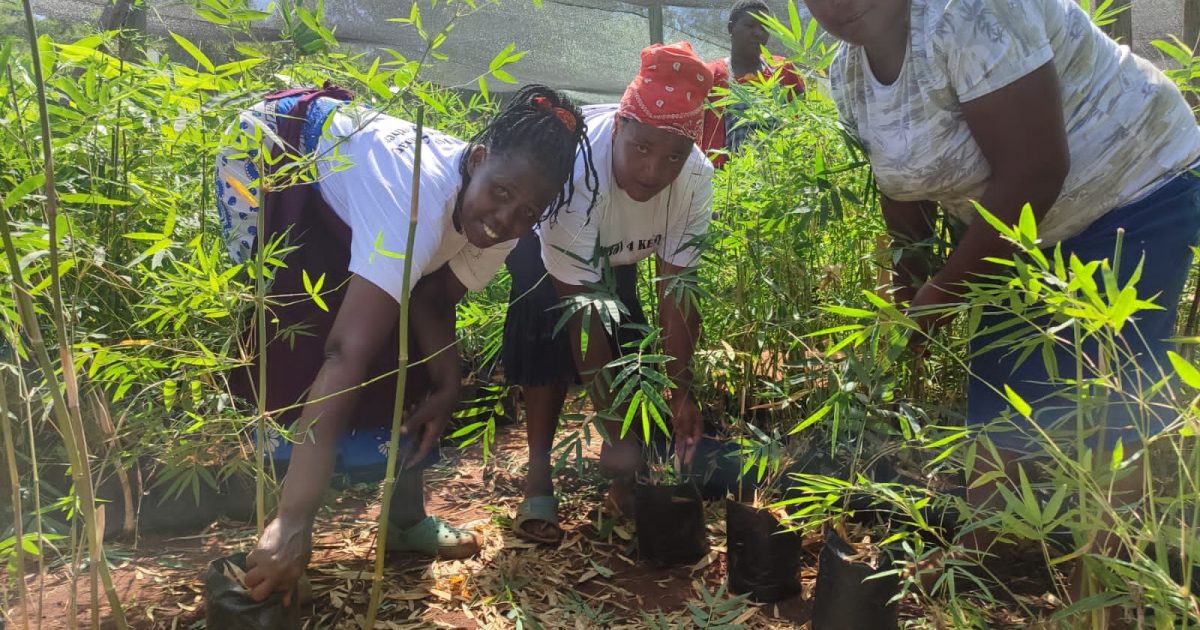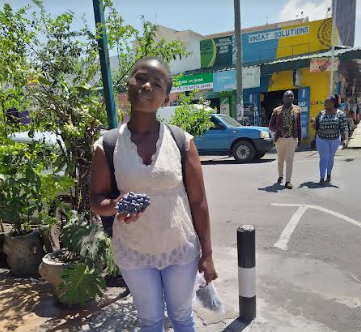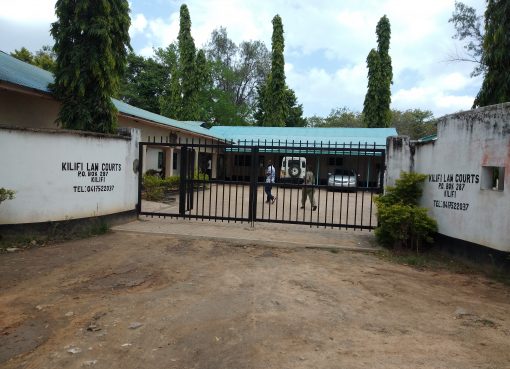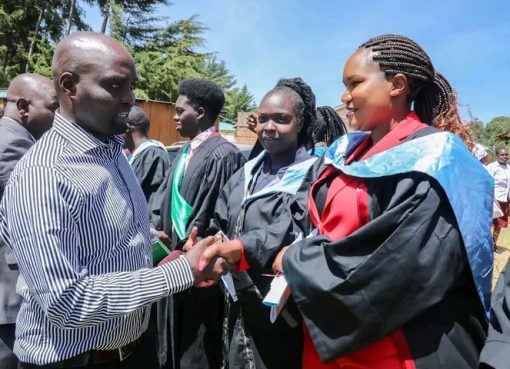As Kenyans intensify efforts to increase the forest cover in the country as a sure way of combating climate change, a group of Murang’a women has not been left behind.
Government agencies and private entities have recently joined hands with an eye on hitting the target of planting 15 billion trees by the year 2032 so as to boost the forest cover in the country to 30 percent.
The Kamahuha Women group, through an initiative by Base Camp Foundation dubbed ‘Bamboo for Kenya’, has joined the concerted conservation efforts. They intend to promote bamboo growing in the country to help conserve natural forests given that harvesting of trees for timber, firewood, charcoal burning and industrial production of paper remains a big challenge to sustaining the recommended forest cover.
Members of the group have started the ambitious initiative by establishing a bamboo nursery from where they will nurture and sell the seedlings to local residents and to other parts of the country.
Their nursery, which is one of a kind, is developed from imported seeds and propagated unlike other local nurseries where the bamboo is grown from cuttings.
The chairlady of the women’s group, Celina Njeri, said they have been trained in growing bamboo and they intend to use the knowledge to benefit the community around them.
Njeri explained that they used to grow the exotic trees but the venture did not give them good returns which is why they switched to bamboo due to its multiple benefits both economic and environment.
“Bamboo is a good source of biomass, its tender leaves can be used as fodder and it can be used to make various products such as utensils, fencing poles and tiles among others products,” she said,
“Bamboo grows very fast and you only harvest the stems and more will sprout unlike other trees when cut you have to plant another one,” she added.
She noted that the group is encouraging more people to adopt bamboo farming as it has a handful of environmental benefits and it can also be a source of livelihood.
Rose Wanjira, a member of the group said growing bamboo has saved her the agony of looking for firewood as the bamboo stems provide enough fuel.
Wanjira narrated how she used to see bamboo as wild grass but after being trained on its uses and benefits, she embraced it and planted a few stems on her farm.
“My farm is small but I have planted five stems and I have been getting fuel for cooking as well as fencing poles from them,” she remarked.
The Bamboo for Kenya project manager, Samuel Kariuki said the demand for bamboo in the county is very high compared to what is being produced.
He stated that the nursery has different species of bamboo which can grow in various climatic conditions across the country.
Kariuki noted that the initiative is aimed at promoting bamboo growing in the country, pointing out that there are plans to have a factory to manufacture bamboo products.
He further called for the implementation of the National Bamboo Policy 2022 which was formulated to help promote bamboo growing in the forests and on farms.
“We are urging the government to promote bamboo growing in the country because it serves as the best tool for combating climate change,” he remarked.
Ole Bernt Froshaug, the founder Base Camp, on his part said they are promoting the planting of indigenous bamboo in Kenya for its conservation value and its potential economic value to the local community.
He said bamboo farming as an industrial crop is on the rise globally as it is being used as an alternative for traditional timber and other products.
According to Bernt, approximately 90 percent of the rural community depend on firewood for cooking and heating, and the harvesting of firewood and charcoal burning is becoming a huge threat to the indigenous forest and biodiversity.
“Bamboo is an effective producer of biomass compared to other trees thus making it a better source of firewood,” he said.
Bernt pointed out that in 1986, the government imposed a ban on harvesting of bamboo from natural forests and this resulted in non-availability of bamboo resources for value- addition and processing and contributed to under-development of the Bamboo sector in Kenya.
“The ban was intended to protect the bamboo resources from over exploitation but the unmanaged culms dried and weathered in the forests,” he said.
“Some knowledge of growing and management of bamboo was lost during this period and we have to regain it and pass it to tree planters and communities at the grassroots,” he added.
The foundation has been training several groups of women in Murang’a on growing and nurturing bamboo as well as making various products which they can sell which Bernt says will serve as an alternative source of income for them and help in environmental conservation.
Base Camp Chief Executive Officer (CEO) Selah Nandamba, divulged that there is a pilot bamboo project in the Masai Mara conservancy adding that they intend to scale up to other areas.
Nandamba stated that bamboo has primarily been known to thrive in wetlands, but there are species which can grow even in the relatively dry areas.
“We have gained enough knowledge and we know what species can thrive in the various climatic conditions in the country,” she remarked.
She underscored the importance of upscaling bamboo farming in different parts of the country as a way of climate change mitigation noting that bamboo is a natural cleaner for soil, water and air which makes it one of the best tools in the fight against climate change.
By Purity Mugo





